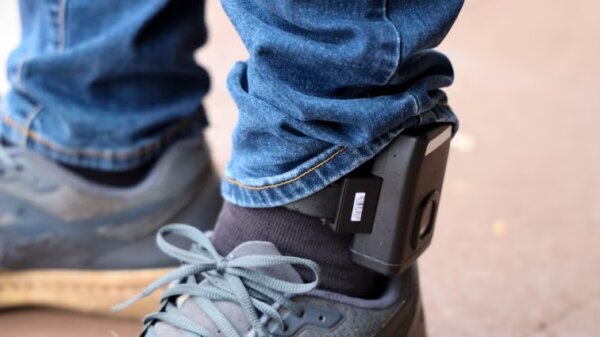Australian Government Limits Access to Detainee Monitoring Information
The government has successfully convinced the High Court to suppress information regarding ankle monitoring of immigration detainees, citing concerns that it may lead to breaches.
Minister for Immigration Andrew Giles has managed to block the media and the public from accessing details about the effectiveness of electronic monitoring. He argued in the High Court that disclosing such information could potentially incentivize former detainees to violate their visa conditions, posing a risk to “national security.”
This included mandating released detainees to wear tracking devices, adhere to curfews, and face a minimum one-year prison sentence for breaching visa conditions.
However, it was discovered that the Department of Home Affairs had been removing monitoring bracelets from individuals contesting their legality in court. This led to the discontinuation of five cases after advice from the Community Protection Board.
Government’s Argument Against Disclosure
In court submissions on April 30, Mr. Giles urged for the suppression of details on how the Australian Border Force and Buddi Ltd conduct electronic monitoring, as reported by The Guardian.
The government’s rationale for the suppression order was based on concerns that the disclosed information could compromise sensitive law enforcement technologies, impact national security, and impede the justice system’s proper functioning.
Publicizing such details might prompt individuals to test the capabilities of their monitoring devices, potentially leading to breaches of visa conditions under the belief that their actions would go undetected.
This risk extends beyond former detainees to serious offenders in Victoria who are subject to electronic monitoring.
Subsequently, the Court granted the suppression order, ensuring that the evidence will be accessible to the judge and the involved parties but not to the public.
The government remains confident in the legality of its visa conditions, emphasizing the role of the Community Protection Board in advising on such matters to demonstrate informed decision-making based on expert advice.
A spokesperson for the immigration minister refrained from commenting on the case before it is heard in court, which is anticipated to take place as early as August.



